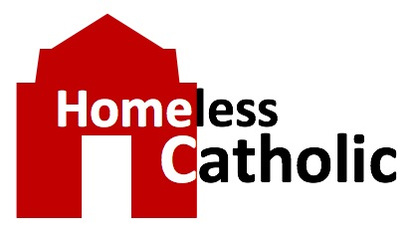Two truths, two gifts
Over a period of a few thousand years our religious belief has amassed an array of secondary truths which can clutter any possible clarity in our thinking. Unless we keep our focus sharply attuned to the bedrock of our faith we risk confusion and deception.
So what are these bedrock beliefs, these two foundational truths?
Image by Heiko Dörr
Reflection - Two
By Steve Hall
https://bible.usccb.org/bible/readings/091022.cfm
I Corinthians 10:14-22
Luke 6:43-49
After reading the current passage from I Corinthians we can reasonably determine that there was a problem for that Christian community pertaining to the eating of meat sacrificed to idols. It’s fascinating to observe Paul’s response to the difficulty brought to his attention. He doesn’t turn to rules and regulations. Neither does he remind them of long standing practice. Rather, he directs the Corinthians to consider the inherent contradiction between their faith and the suspect practice.
He begins with a core teaching of their newly found faith:
“The cup of blessing that we bless,
is it not a participation in the Blood of Christ?
The bread that we break,
is it not a participation in the Body of Christ?”
Clearly Paul is directing them to consider the meaning of their actions. The “cup” and the “bread” are the elements of sacrifice — they are the body and blood of the Lord. “Those who eat the sacrifices [are] participants in the altar [i.e., the sacrifice].” Similarly, he says, “I mean that what they [the pagans] sacrifice, they sacrifice to demons, not to God, and I do not want you to become participants with demons.” In either case, whether the sacrifice is to God or demons, by eating of that which is sacrificed, a person binds himself to that which is the object of the sacrifice.
Implicitly, Paul is affirming one of the two foundational truths of faith. It is the declaration from John’s Gospel which is so often quoted: “God so loved the world that he gave his only-begotten Son, that whoever believes in him should not perish but have eternal life.” (John 3:16) In other words, our salvation comes through Jesus and him alone; to even intimate that our salvation may come from another is not only opposed to the Christian faith, it is in contradiction to its fundamental teachings.
Salvation cannot come from both Jesus and some other, especially not from two so diametrically opposed. “You cannot drink the cup of the Lord and also the cup of demons. You cannot partake of the table of the Lord and of the table of demons.”
Over a period of a few thousand years our religious belief has amassed an array of secondary truths which can clutter any possible clarity in our thinking. Unless we keep our focus sharply attuned to the bedrock of our faith we risk confusion and deception. So what are these bedrock beliefs, these two foundational truths?
The first of these was initially expressed in ancient Israel: “Hear of Israel, the Lord our God, the Lord is One.” The statement originated from the actions of God revealing Himself to Abraham, Isaac and Jacob and later it’s meaning was more fully unveiled in the events surrounding Moses and the Exodus. This God was initially recognized as the God beyond all other gods, the God who was uniquely God, the God who did not even fit the human concept of god. He was creator of all that existed and yet was desirous of a relationship with all He had created. Unlike the gods of the pagans, He was beyond manipulation and control. He stood apart from all else as totally Other and yet indifference to His creation was alien to Him. Consequently, He was/is active in the affairs of men, not for the purpose of manipulation or control, but with the purpose of allowing those of free will to choose and receive divinity.
Our faith begins here! This is the first of our foundational truths.
I believe in God! The One who is not only the Father Almighty, the Creator of heaven and earth and of all that is visible and invisible. I believe in God who is the essence of love and the One of infinite care and concern and comfort. The One who is present to and for his creation. The One who is the song to which we are invited to give voice.
There is only one other foundational truth for our faith. It was mentioned above when reflecting on the teaching of Paul. It is the truth that our salvation comes through Jesus Christ, and through him alone. We may worry ourselves to the point of exhaustion thinking about those who have never heard of Him; but that is really not our problem except insofar as we have failed to make him known. The fact of salvation, the possibility of being united with the Father, the reality that physical death has been conquered for all — these are now a given. How that is achieved for those ignorant of what Jesus has done is the Father’s concern, not ours.
Those who object to the notion that these two points are uniquely fundamental would probably cite other doctrines of faith; but careful consideration will demonstrate that all other teachings derive from a maturing understanding of the two or upon an explication of the two and their implications. However, there are two other elements of our faith which deserve special attention: the Bible and the Eucharist. Why? Because these two alone are divine gifts given to the people of God; and, therefore, they stand apart from every other teaching.
We commonly refer to the Bible as a book. In practice it is often referred to as THE Book or as the GOOD Book. We know that the terms are slightly ambiguous in that a collection of books is contained therein. More important, however, is the very use of the term ‘book.’ The Bible is a book (or collection of books) only in the sense that it is written material and the term ‘book’ fails in that it tells us nothing about the author and nothing about its unique source. In faith, we know the Bible as the written word of God. It is from Him and about Him.
God, along with the men who wrote down the words, is the author. It is not a book of moral principles, though it contains many. It is not a record of human history, though it does narrate history. It is not about men and women of ancient times, though it does document their stories. It is not a book of wisdom, though it contains prime, elementary examples of Wisdom. It is directed at the simple as well as the educated because it is from God and about God so that men can know him. It is divine in its origin and divine in its power. It is, in fact, uniquely Other than what we commonly call ‘book.’
The second divine gift we have been given is the Eucharist, the body and blood of Christ. It’s historical origin, symbolism and significance are beyond detailed inclusion in this brief reflection. But there are two points that must be mentioned. The first is from Jesus himself: “Jesus said to them, ‘Truly, truly, I say to you, unless you eat the flesh of the Son of man and drink his blood, you have no life in you.’”(John 6:53) This is a matter of historic and symbolic significance. It recalls both the meaning and consequence of the blood of the lamb on the doorposts which protected the Hebrews from death during the tenth plague in Egypt.
Likewise, it recalls both the meaning and consequence of the manna which came down from heaven offering life giving sustenance during their desert journey. The second point is found in Paul’s instructions to the Corinthians. That instruction deserves to be restated here: “Those who eat the sacrifices [are] participants in the altar [i.e., the sacrifice].” Take note! Paul is clearly referencing the sacrifice of the cross where Jesus surrenders his will to that of the Father. And in the same breath he is referencing the celebration of the Eucharist, the Mass. Listen to the words once more.
“The cup of blessing that we bless,
is it not a participation in the Blood of Christ?
The bread that we break,
is it not a participation in the Body of Christ?”
It is because of this divine gift that he will quickly declare that, “Those who eat the sacrifices [are] participants in the altar [i.e., the sacrifice].” This was clear to pagans. This was clear to Jews. This was clear to the early Christians. The established practice, the customary meaning of the practice, the fully understood significance of participating in any sacrifice, no matter to whom it was offered, was appropriately applied by Paul to the Eucharistic celebration. We consume his body. We drink his blood. In doing so we become immersed (no matter how poorly) in Jesus’ sacrifice of surrender to the Father.
This is, indeed, a divine gift!
Our faith, then, is not that complicated. It rests on two foundational truths; and, for those who have opened themselves to faith, it presents us with two divine gifts.

